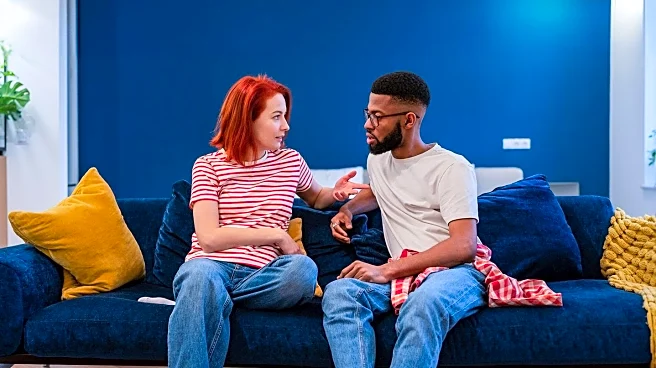What is the story about?
What's Happening?
Interracial couples are being advised to engage in four essential conversations to navigate the complexities of their relationships. These discussions, as highlighted by experts, focus on understanding racial and cultural differences, creating a unique family culture, compromising on cultural practices, and supporting each other in family and community settings. Nina Sharma, an author, emphasizes the importance of curiosity and openness in discussing each other's cultures. Psychotherapist Kaoru Oguro suggests that acknowledging differences is crucial for understanding how race and power dynamics affect relationships. The conversations aim to help couples blend their cultures, negotiate differences, and present a united front against societal biases.
Why It's Important?
These conversations are significant as they address the unique challenges faced by interracial couples, such as cultural misunderstandings and societal biases. By engaging in these discussions, couples can strengthen their relationships and create a supportive environment for their families. This approach not only fosters mutual respect and understanding but also helps in co-creating a family culture that celebrates diversity. The broader impact includes promoting inclusivity and reducing racial tensions within communities, as couples who successfully navigate these challenges can serve as role models for others.
What's Next?
Interracial couples are encouraged to continue these conversations throughout their relationships, adapting to new challenges as they arise. Experts suggest that couples should remain open to revisiting these discussions as their circumstances change, such as when raising children or dealing with extended family dynamics. The ongoing dialogue can help couples maintain a strong partnership and effectively address any biases or conflicts that may emerge over time.
Beyond the Headlines
The emphasis on these conversations highlights the evolving nature of relationships in a multicultural society. It underscores the need for continuous learning and adaptation in personal relationships, reflecting broader societal shifts towards greater acceptance and understanding of diversity. This approach also raises awareness about the importance of addressing racial and cultural issues proactively, rather than reactively, in personal and community contexts.















